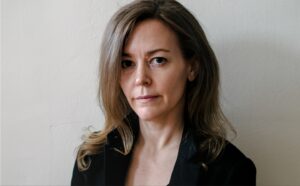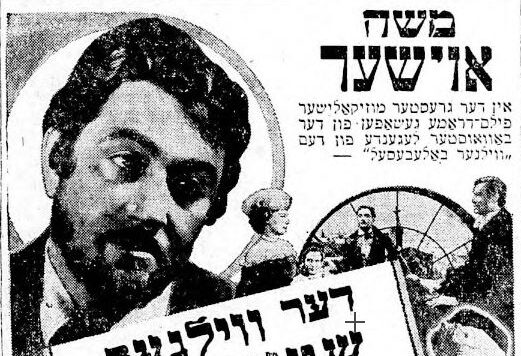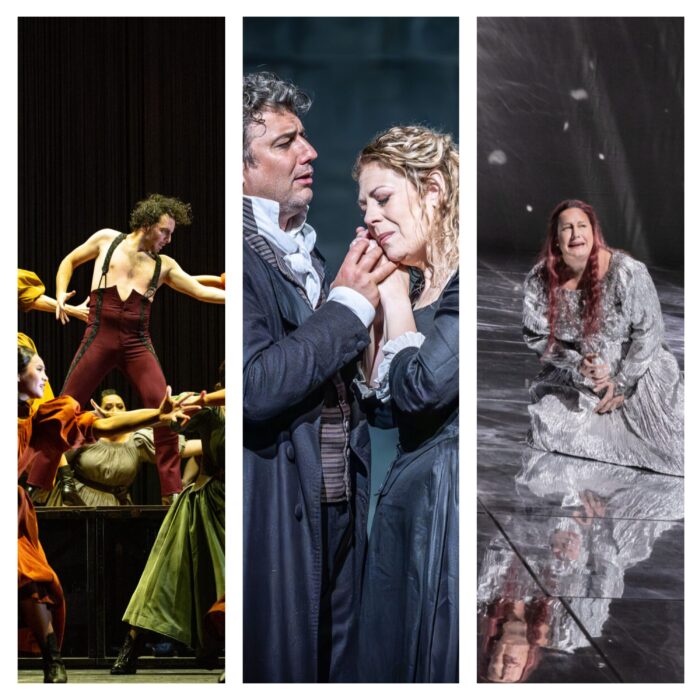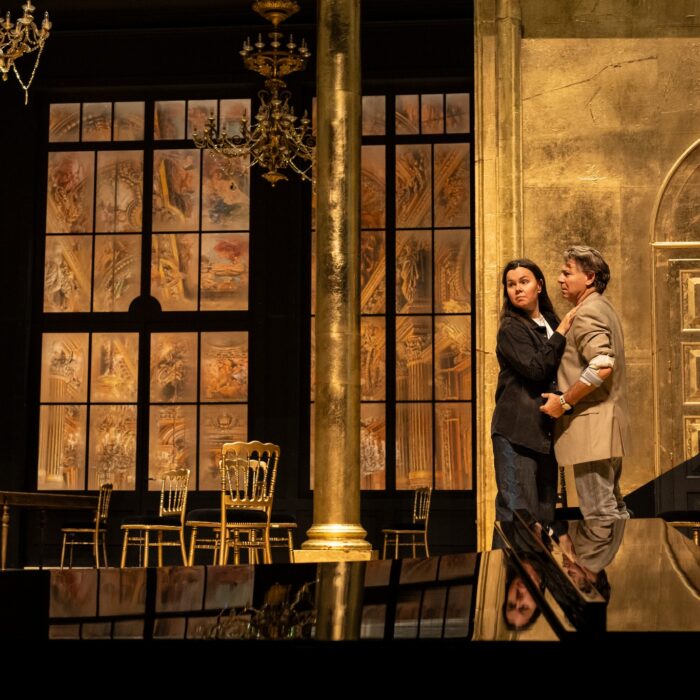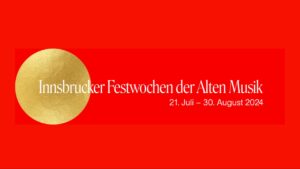
Documenting the Evolution of an Early Music Orchestra & the Innsbruck Festival
Accademia Bizantina Orchestra Celebrates 40 Years and Becomes the Innsbruck Early Music Festival’s Orchestra in Residence for Seasons 2024-28
By Jennifer PyronThe story of how Accademia Bizantina (AB) began seems quite simple. But like all good stories, there is more to it than meets the eye. In 1983 three classmates of the Ravenna Conservatory met for coffee. This initial meeting included Angelo Nicastro, a violist and now director of the Ravenna Festival; Romano Valentini, a pianist, organist, and harpsichordist, as well as AB orchestra’s general manager in the 1990s and 2000s; and Luciano Bertoni, a violist.
“At the time of AB’s beginnings I was already in different groups, I was creating new groups, and when I decided that music was going to be my profession, I realized that within the conservatory the idea of the professional musician was not characterized by freedom. This led me to think about what I wanted to do differently. I wanted musicians to be free to experience music and this is why we created AB,” says Nicastro.
It was through their initial spark and resourcefulness that this group began to attract more like-minded collaborators, including cellist Paolo Ballanti and violinist Paolo Zinzani. In 1984 they officially founded an association, Accademia Bizantina (AB).
“Our first years were very young and passionate. We had the good fortune of remaining in contact with very important musicians who gave us their time… We already had musicians that were important to us and would become even more important to us because they just wanted to be with us. We were not politicians, we were musicians. Our desire and our enthusiasm was real and they could feel it. They felt like they could be friends with us and have been friends with us now for a very long time,” says Nicastro.
On June 2nd, 1984, they had their first concert with their first permanent conductor, Filippo Maria Caramazza. By 1989, AB recorded Arcangelo Corelli’s “Omnia,” led by conductor and violinist Carlo Chiarappa, and on this particular occasion they met Ottavio Dantone for the first time. It was this moment when everything began to evolve for the orchestra, developing into a more profound relationship with the interpretation of the score, and bringing baroque music to life.
“Our group is a group of musicians that decided to manage themselves. This was not an easy feat and the work we were doing was already being done. In 1996 we invited Ottavio Dantone to become the conductor of AB and he was already a great musician but he didn’t have the moment he is having today. With [Dantone] as the conductor and artistic director, I was able to collaborate on other projects for AB, including opera. And thanks to my role with the Ravenna Festival, I was able to collaborate with them. This is when AB’s specific path with opera performances began. And it is this path that brings us here today, when we still fight, we still work for music and civilization as a whole,” says Nicastro.
The Orchestra Body Keeps the Score
AB has evolved naturally. The familial closeness among its musicians, stemming from the foundation’s purpose of free and pure interpretation of score, remains at the core of why they do what they do, and most importantly at the center of who they are. Specialising in the Baroque repertoire, AB launched their new project “Imprinting” in 2024, which sees them engaged in a series of recordings and tours on the Romantic and Classical repertoire. These are Dantone’s words on the subject:
“I remember playing with AB for the first time in 1989. I was there for only one project but I still remember the great impact it had on me when I felt their energy and great enthusiasm. AB has become like a family to me. We share everything. There is always an exchange of ideas and opinions because we need to find an agreement before performing. This is the only way we can communicate to the audience what we feel,” says Dantone.
Through studying early music scores with sensitivity and an instinct towards the historical performance practice, Dantone has developed a profound, in-depth sense of synthesis. But, instead of telling you this, he would show you. His ability to exercise such a high degree of comprehension through his playing and leadership fosters within him the ultimate understanding about what early music can do for both the AB orchestra and the audience. In other words, early music sounds and feels refreshing with Dantone, whose perspective illuminates the path forward, showing where it can go and who it can reach.
“We don’t play music in the baroque style. Basically we use the instructions and approaches of 19th century music gestures that produce interesting results when applied to the music. We use period instruments and analyze the language, the different ways that were adopted at that time. We see what kind of influences this music, from past approaches and suggestions, can have. We decided to do this, and prove to ourselves, wanting to share it with everybody else. We know that music from the 19th century is not exactly early music, and there are other groups that have started using period instruments to perform this kind of music, but period instruments… don’t mean much in the sense that it’s not the period instrument, per se, but it’s the philosophy behind it. The devices, the gestures that are adopted, make this music different. In this case, we have all these details that we analyze and have studied that we apply and produce an effect on the music that we perform. We have new features emerging because of this combination and this becomes the future of early music,” says Dantone.
Innsbruck Festival and Cultivating Inspiration from Within
The Innsbruck Early Music Festival has celebrated AB’s 40 years of inspiring and informing by inviting them to be the orchestra in residence for the 2024-28 seasons. This is a special moment for the festival too, because of its alignment with Innsbruck’s artistic director, Eva-Maria Sens, who is now in her second year in this position. What feels like destiny coming to pass may very well be the most crucial and historical moment worth documenting–a tipping point in time.
“The Innsbruck Festival is one of the most important festivals for early music worldwide and it is a great honor to be chosen as the orchestra in residence there. I believe it will be the ideal place for research because the festival is always searching for specific music pieces and composers that are performed less often but still of great importance. This will be a great way for AB to get in contact with this type of repertoire,” says Dantone.
“I think there are some things that are meant to be. Ottavio and AB made their first mark at Innsbruck by performing their very colorful “La Dori” by Pietro Antonio Cesti in 2019. When it was time to look for a musical director, of course Ottavio was on the list of ideal musicians of early music, and then destiny called, in his case quite literally. With Ottavio and AB together it simply feels right. Ottavio and I share very similar ideas of what we would like to present at the festival. Beyond these ideas we share something very special in this collaboration,” says Sens.
The Innsbruck Festival will present a full season, between July 21st and August 30th, of operas and performances for audiences in Austria, including operas “Cesare in Egitto” by Geminiano Giacomelli, “Arianna in Creta” by George Frideric Handel, and “Dido, Queen of Carthage” by Christoph Graupner. There will also be an opening concert “Famos!” and a new concert program, “Ottavio plus.” Both “Famos!” and “Cesare in Egitto” will highlight Dantone’s legacy as both Innsbruck’s musical director and the driving passion within AB for researching musical repertoire and composers related to Austria’s music history. This season will conclude with Innsbruck’s annual “Cesti competition,” which is now in its 15th year. The competition brings together young singers from all over the world with a special focus on vocal technique and talent in the baroque opera field. The competition, named after the 17th century Italian composer and singer Pietro Antonio Cesti, continues to support a mission promoting study and performance for singers. The prizes are often engagements upon concert and opera stages, including cast prizes chosen by the season’s jury and audience.
Categories
Special Features